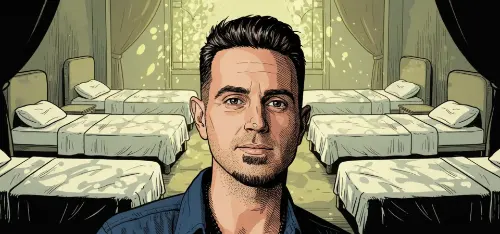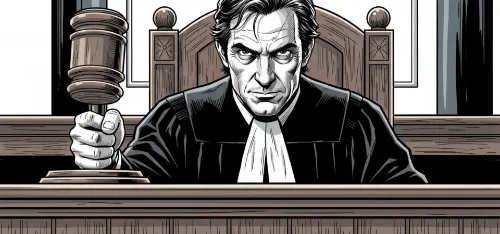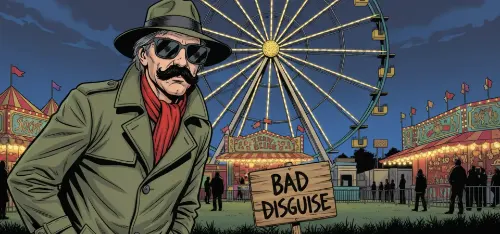Why Wade Robson’s Lawsuit Was Dismissed: Legal Technicalities Behind the 2015 & 2017 Rulings

March 16, 2020
Wade Robson initiated legal proceedings against the Michael Jackson Estate in 2013, alleging that he had been sexually abused by Jackson during his childhood. It is important to emphasise that the dismissals of his lawsuits in 2015 and 2017 were not based on any judicial evaluation of the truthfulness of his claims. At no stage did the courts assess the credibility of Robson’s allegations. Rather, both cases were dismissed due to complex legal technicalities and strict procedural limitations—specifically, issues surrounding the statute of limitations and the legal responsibilities of corporate entities.
The 2015 Dismissal
Robson’s initial lawsuit was filed against the Michael Jackson Estate. After extensive legal proceedings, including multiple rounds of discovery and pre-trial motions, the Los Angeles probate court dismissed the case in 2015. The dismissal was grounded entirely in procedural law. At the time, California’s statute of limitations required victims of childhood sexual abuse to file civil claims before reaching the age of 26. Robson, who was in his early thirties when he filed, had exceeded this deadline
Although Robson’s legal team argued that the deadline should be extended under the doctrine of equitable estoppel—which allows for exceptions if the defendant’s conduct prevented timely filing—the court found that this principle did not apply in his case. The judge noted:
Plaintiff correctly notes that equitable estoppel is an issue only because the applicable time deadlines for his claim have already run.
View the screenshot of the document here.
This statement underscores that the court’s decision was based solely on timing. It did not reflect any judgment on the substance of Robson’s allegations. Nonetheless, some supporters of Michael Jackson misrepresented the ruling, suggesting that the case was dismissed due to doubts about Robson’s credibility. This is factually incorrect.
The 2017 Dismissal
Following the setback in 2015, Robson pursued a new legal avenue. He filed a separate lawsuit against two corporate entities associated with Jackson—MJJ Productions, Inc. and MJJ Ventures, Inc.—arguing that these companies had facilitated the abuse and should therefore be held liable.
Under California law, there is an exception to the statute of limitations if a company knew or should have known about an employee’s unlawful sexual conduct and failed to take reasonable steps to prevent it. For Robson’s claim to proceed under this exception, he needed to demonstrate that the companies had a legal duty to supervise Jackson and that they failed in that duty.
The court, however, found that the companies could not be held liable because they lacked the legal authority to control Jackson’s actions. The judge stated:
Defendants produce evidence to support their theory that they had no ability to control Michael Jackson. There is no dispute Michael Jackson was the 100 sole shareholder/owner of defendants during his lifetime. Until June 1, 1994, Michael Jackson was also the sole director for both corporate defendants. On June 1, 1994, as the sole shareholder, Michael Jackson increased the size of the Board of Directors for both corporate defendants from one to four.
Based on such facts and Corporations Code section 303, subdivision (a) and section 603, subdivisions (a) and (d), defendants demonstrate no one other than Michael Jackson had the legal ability or authority to control Michael Jackson.
View the screenshot of the document here.
Drawing on California Corporations Code sections 303(a) and 603(a) and (d), the court concluded that Jackson’s complete ownership and control of the companies meant that no other individual had the legal authority to supervise or restrain his conduct. As such, the companies could not have imposed “reasonable safeguards” or taken “reasonable measures” to prevent any alleged misconduct.
The court also examined whether Robson’s exposure to Jackson occurred within an environment created by the companies—a key requirement for the statutory exception to apply. The judge found that Robson’s access to Jackson was not the result of a structured corporate relationship, but rather stemmed from Jackson’s personal fame and influence. The companies’ involvement was deemed incidental, not institutional.
Here defendants' relationship with Michael Jackson did not result in the exposure of plaintiff to the alleged sexual abuse. Defendants' involvement with Michael Jackson and plaintiff was incidental to the alleged sexual abuse. These facts distinguish this case from those where the sexual abuse suffered was directly related to the inherent relationship between the perpetrator and the entity such as teacher/school, scout master/scouting organization, priest/church or coach/youth sports organization.
View a screenshot of the document here.
This distinction was pivotal. The court ruled that the companies did not create or control the environment in which the alleged abuse occurred, and therefore could not be held liable under the legal framework that applies to institutions with a duty of care over children.
Conclusion
In both instances, Robson’s lawsuits were dismissed not on the merits of his claims, but due to procedural and legal constraints:
- The 2015 case was dismissed because it was filed after the statutory deadline for childhood sexual abuse claims.
- The 2017 case was dismissed because the companies lacked the legal authority to control Jackson and did not create the environment in which the alleged abuse occurred.
At no point did the courts express a view on whether the abuse occurred. The dismissals were based entirely on legal structure and timing.
In 2019, California enacted Assembly Bill 218 (AB218), which significantly extended the statute of limitations for childhood sexual abuse claims. The law, which came into effect in 2020, allows survivors to file lawsuits until the age of 40, and in some cases even later, depending on when the abuse was discovered. This legislative change may offer Robson a renewed opportunity to pursue his case.
However, while AB218 removes the previous age restriction, it does not eliminate the need to meet other legal requirements—such as demonstrating institutional responsibility or a duty of care. As such, any future legal action will still face considerable hurdles, both procedural and evidentiary.
With permission, the following article was translated and enhanced from The Truth about Michael Jackson.





